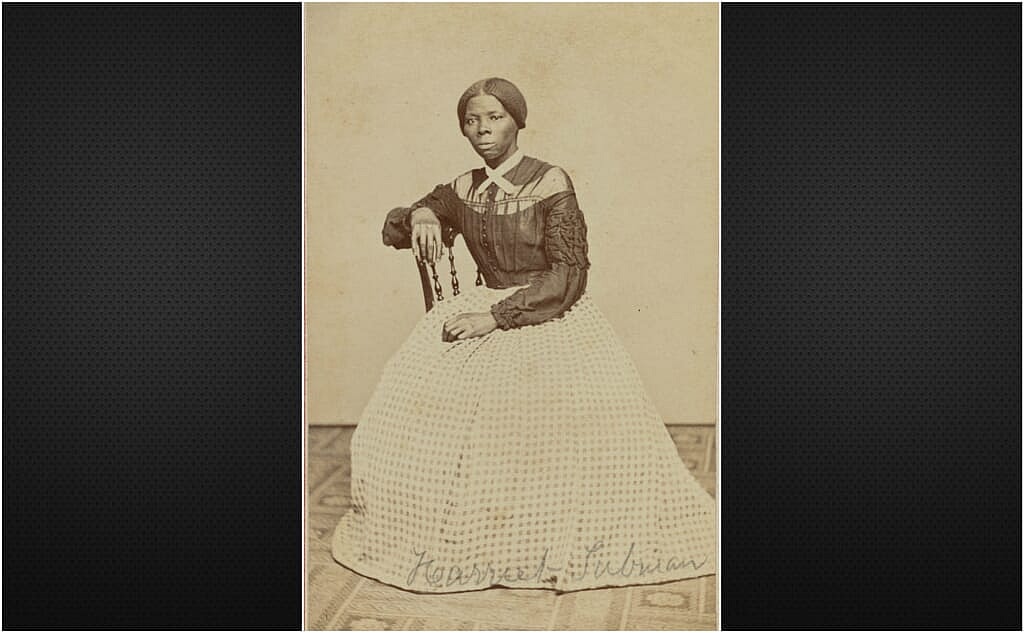African-Americans are living breathing testimonies of our ancestor’s faith in hopeless places; the fruit of familial trees whose roots many may never fully know.
With help from the internet and DNA testing, tracing one’s family lineage has become easier than ever before, and yet many people take for granted the greatest resources they already possess within.
“Everybody has a story; every family has a story, so make sure that you get to the eldest in your family in order to get the kind of information that you need,” noted Michele Jones Galvin, a direct descendant of Harriet Tubman who led hundreds of slaves to freedom via the Underground Railroad.
Through countless hours of research, interviews, and connecting dots which spanned from Syracuse, NY to the Eastern Shore of Maryland and the Gold Coast of Africa, Galvin and her mother, Joyce Stokes Jones, not only pieced together their family tree but confirmed their direct connection to one of America’s greatest heroines.

Galvin credits her mother for beginning the arduous research process in the 1960s, with very little resources at the time, while juggling the responsibilities of being a wife, mother, and media professional.
“My mother’s great-great-grandmother, Sophia Green Brown, was Harriet Tubman’s sister,” Galvin continued. “My mom is to be commended for the type of research that she did, for the longevity of it, to create her original writings on Aunt Harriet.”
It was a labor of love, which later resulted in the mother and daughter self-publishing a book titled Beyond the Underground: Aunt Harriet, Moses of Her People. Told through the lens of seven generations of women tied by blood to Harriet Tubman, the book intricately weaves together memoir, family lore, and historical reconstruction to offer readers a more personal account of Tubman’s life and legacy.
“A very good friend of mine recently said ‘history is not always what happened…history is who tells the story,’” Galvin pointed out. As direct descendants of Tubman, she says they felt a great responsibility to ensure Tubman’s self-sacrifice and compassion resonated through each page.
Over the span of a decade, Tubman reportedly made 13 trips along the Underground Railroad saving her family, friends, and others from bondage. During the Civil War, she served in the Union Army as a spy and scout helping to free more than 700 slaves in the Combahee Ferry Raid.

“She was willing to die not only to obtain her own freedom but every single time she went back to rescue others, she risked her life and limb every single time,” Galvin continued. “Her compassion for others…compassion is not just empathy; it’s not just feeling sorry for someone or kind of understanding what someone is going through. There’s a whole second part to it and the second part of compassion is doing something actively to alleviate the pain and the suffering.”
“The obstacles that I have to overcome today are nothing compared to what she (Tubman) had to overcome and that’s my driving force,” added Marc Jones, Galvin’s brother.
Jones believes knowing your family history “is the most important thing we can do,” and as an entrepreneur, he has been able to draw enduring strength from the courage and fearlessness he knows courses through his bloodline.
“I am a part of a legacy that is unbelievable in Black history,” Jones said. “Generations and generations of other family members are doing what they’re doing now because of Aunt Harriet. She was a game changer and changed things not just for our family, but for other families.”
However, the full scope and breadth of Harriet Tubman’s legacy, and countless others who played pivotal roles during the abolitionist movement, may not be fully explored and taught in some schools going forward with growing objections to “critical race theory.”

“It seems like we’re moving ahead…but as we move ahead 10 feet, we go back 20 feet,” Galvin reflected. “Our stories have not been fully or truthfully integrated in American history as we have all grown to hear it and learn it.”
Galvin imagines if her Aunt Harriet were alive today, she would be locked arm in arm on the frontlines of the Black Lives Matter movement. As a co-founder of the National Association of Colored Women, Tubman also passionately fought for anti-lynching laws, civil rights, and women’s voting rights.
In her latter years, she established the Tubman Home for Aged and Indigent Negroes, a nursing home for the poor and elderly in Auburn, NY.
A life dedicated to service, Tubman left an indelible mark on countless people and places. Especially along Maryland’s Eastern Shore, where her father Ben Ross’ home was just uncovered by archeologists earlier this year. In addition to his plot, artifacts from the 1800s were also discovered throughout the same wetlands and woods Tubman navigated to freedom. Further connecting past and present, a matriarch and her descendants, and faith that never dies.
Have you subscribed to theGrio’s new podcast “Dear Culture”? Download our newest episodes now!
TheGrio is now on Apple TV, Amazon Fire, and Roku. Download theGrio today!

